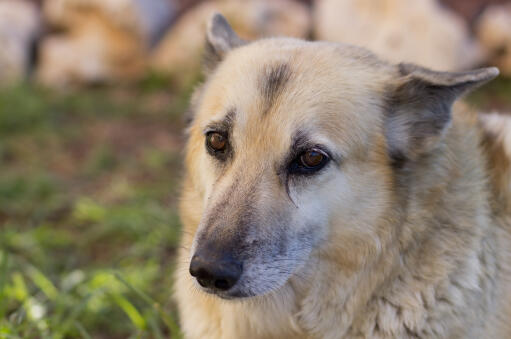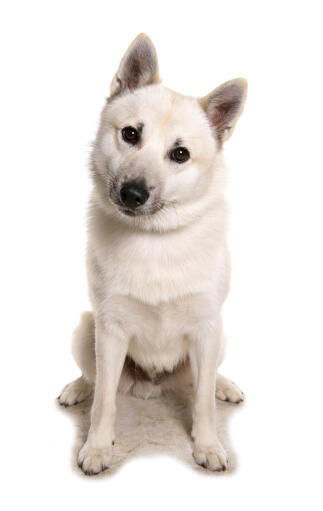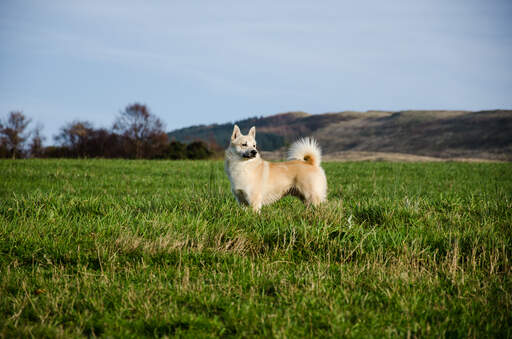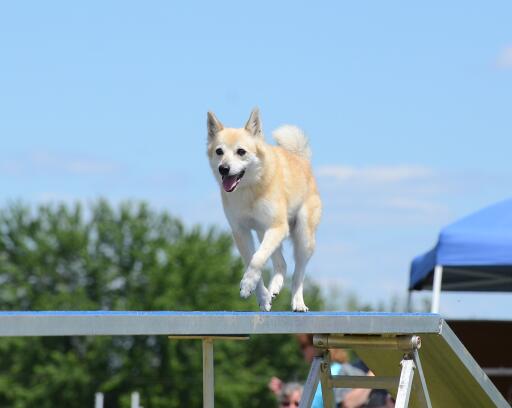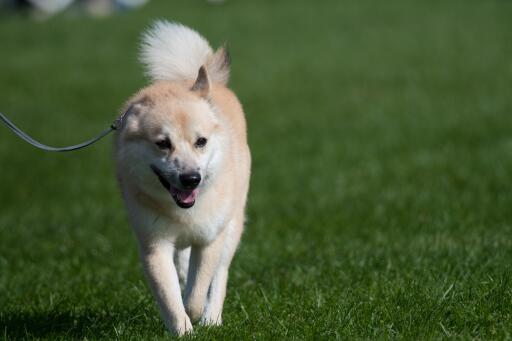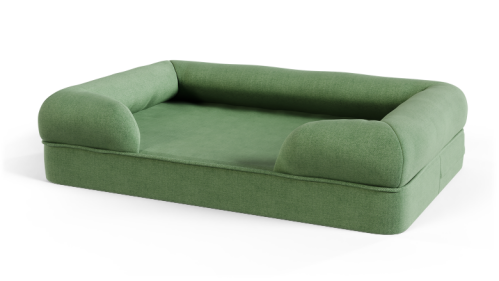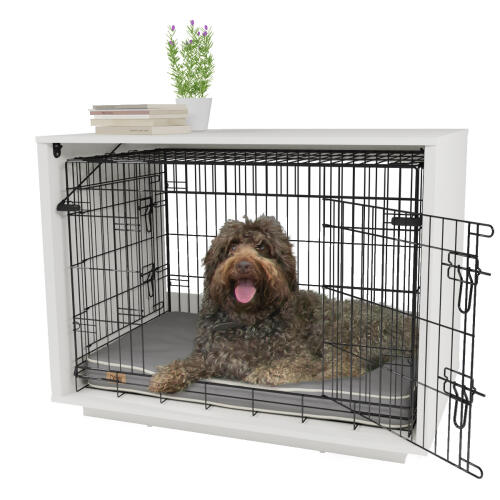Norsk Buhund





History
The history of the Buhund (meaning 'farm dog') dates back hundreds of years and can be traced to Viking times. They were often buried with their Viking owners to help protect them in the after life. The modern day breed is classes as a Spitz type and still used in Scandinavia for herding cattle and sheep, although is more often kept as a pet. They were also used to guard the farm. They are unusual as they like to please, which isn't a common trait in Spitz type dogs. Many are used today as assistance dogs for the disabled and for Police work.
Behaviour
Active, loyal and loving is the best way to describe the Norwegian Buhund. They love to be around people and are affectionate and friendly towards their family. Especially good with children, they are calm and playful around them. They form very close bonds with their family, so care should be taken to ensure they are well socialised with strangers from an early age, to prevent them becoming over protective with their family. They make good watch dogs and will warn you at the slightest noise and can be quite vocal, so steps should be taken to teach the 'quiet' command quickly. They rarely snap/bite unless provoked and tend to be aloof with strangers at first. They love to cuddle up to their owners and often forget their size, wanting to climb on the sofa next to you to get as close as possible.
A very active breed, the Bohund needs lots of daily exercise. They make good jogging partners and you will find it hard to tire them out. A very long daily walk should be enough for them to be calm and content in the house, but if not given enough exercise, they can become destructive. Recall is not usually a problem and they are quick learners.
Their intelligent nature can sometimes be seen as head strong and they need to be taught, to be happy and satified. Positive reinforcement and reward based training works best and they do well in agility, obedience, herding and general training. They like to please their owner and will always be happy when learning new tricks. This keeps them mentally stimulated and rewards you with a perfect dog. If you aren't consistent with training, they will take advantage of you!
The medium length coat sheds a fair amount but tends not to matt, so a decent weekly brushing will keep it in good condition. It sheds a lot of hair when moulting and brushing more often will prevent hair all over your home. They are naturally very clean and will wash themselves like cats. They have a very low odour.
Like many breeds, the Buhund is prone to Canine Hip Dysplasia and can also suffer inherited eye related issues.
Temperament
Norwegian Buhunds have a vigilant and active temperament. They make good guard dogs due to their protective instincts gained through years of selective breeding for a good herding dog. They need a good amount of daily excercise combined with consistent training so they are both settled and respectful in the home. Norwegian Buhunds make good family dogs as they get on very well with children and will adore their families.
Health Problems
Health problems that may affect Norwegian Buhunds include canine hip dysplasia (CHD) and some eye diseases.
Breed Details
- Status: Common
- Life Expectancy: 13 - 15 years
- Vægt: 14 - 18 kg
- Højde: 16 - 18"
- Rare: Nej
- Coat: Medium - Double
- Grooming Requirements: More than once per week
- Town or Country: Either
- Minimum Home Size: Small House
- Minimum Garden Size: Small to Medium Garden
- Breed Type: Herding
- Størrelse: Medium
- Energy Level: Medium
- Exercise Required: Up to 1 hour

